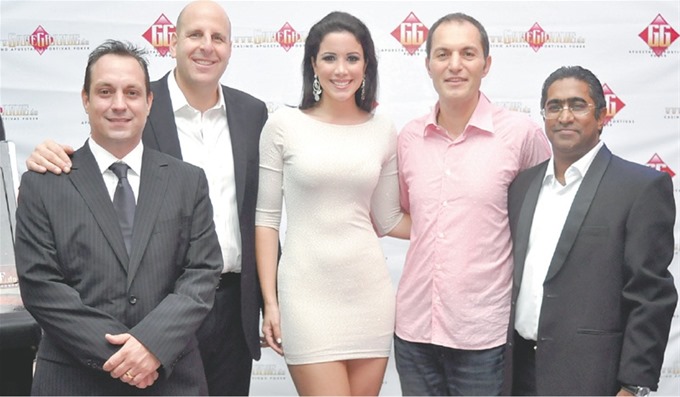Canadian financial regulator AMF is pursuing Amaya CEO David Baazov’s elder brother Ofer “Josh” Baazov for alleged securities fraud, it announced yesterday.

The elder Baazov has an apparently shady history, having once served 90 days in prison for possession of cocaine, as well as operating a telemarketing scam that conned gullible customers out of hundreds and thousands of dollars.
Just hours after the shocking news that Amaya’s CEO was facing five counts of insider trading, a second official AMF statement announced that it had executed search warrants and obtained freeze-and-cease-trade orders against of a separate group of 13 individuals, including Josh Baazov.
Those orders mean the thirteen cannot initiate or complete any trades on the Toronto Stock Exchange while the orders remain in place, and also gives the AMF the power to freeze bank accounts and seize any tangible assets.
The AMF alleges that the 13 suspects “traded while in possession of privileged information, or they leaked privileged information about potential mergers and acquisitions involving Amaya inc.” The Quebec regulator also alleges that they enriched themselves by around CA$1.5 million ($1.13 million) between 2011 and 2016.
The dates are significant in that they imply that the alleged insider trading predates the Rational Group Acquisition; 2011 was the year that Amaya announced its first major takeover, of software company Chartwell, and later Canadian online gaming pioneer Cryptologic.
Telemarketing Scam
In the mid-nineties, Josh Baazov fell afoul of the Washington-based Federal Trade Commission’s “Project Jackpot,” which was charged with targeting telemarketing scams offering phony prizes, according to Canada’s Globe and Mail.
The FTC accused Josh Baazov’s company of tricking US senior citizens into buying hundreds of thousands of dollars of merchandise in return for the promise of valuable prizes, none of which ever materialized.
In 1997, a federal judge ordered “Josh Baazov and Ofer Baazov” to pay $777,000 in restitution to the company’s victims, apparently believing that Josh and Offer were two separate people. The Globe and Mail discovered in June last year that not a cent of this has ever been paid.
In the same report, the newspaper suggests that Josh Baazov may have been involved with the founding of Amaya, along with his brother. It notes that one Albert Jan, with whom David Baazov once ran a tanning salon called “Celebrity Tan,” claims on LinkedIn that he worked at Amaya from 2004 to 2006 “with David and Josh Baazov founder [sic] of Amaya Gaming.”
The gaming operator denies that Josh Baazov has ever “been an Amaya employee” and “to the best of the company’s knowledge, is not, and never has been, an Amaya shareholder.”
To be fair, online resumés are not traditionally the most trustworthy of documents, and Jan’s use of the singular “founder” and lack of clarifying punctuation renders the statement ambiguous.
Was Josh Baazov in Amaya or Not?
But the Globe and Mail kept on digging, and found several instances in which Josh Baazov’s name pops up in relation to Amaya’s affairs.
Between 2005 and 2006, he met with a Canadian casino official, seeking advice about how to supply electronic poker tables to the casino industry. He was hawking a product called PokerMate, which later became Amaya’s proprietary product.
He also appears to have been involved in finding potential investors for Amaya in the late noughties, and as late as 2011 was mentioned by Chilean casino officials as being one of two “representatives” from Amaya who offered them a presentation of the company’s gambling products.
The online edition of the Dominican Republic’s Listin Diaro, dated November 21, 2012, shows a photograph of him offering a similar presentation in Santo Domingo, along with Craig Levett, who was also named by AMF as one of the 13 suspects yesterday.
Levett is a longtime business partner of both Baazov brothers, and was an initial investor in the tanning salon that would one day morph into one of the biggest online gaming companies in the world.
Both Josh Baazov and Levett have declined to respond to the Globe and Mail’s request for comment.


